Descent Into Avernus
Characters
A motley crew if ever there wasChapters
Bili ‘Bear’ Tengervaald

Bili ‘Bear’ Tengervaald
The Reghedmen, also known as the Reghed barbarians or the men of the tundra, were the barbarian tribes of Icewind Dale. They eked out a harsh and bitter life between the Reghed Glacier and the Sea of Moving Ice. Each entirety of the Reghedmen people lived within one of several tribes, each of which was ruled by a king.
Known tribes were the Tribe of the Elk, the Tribe of the Wolf, the Tribe of the Bear, the Tribe of the Tiger, the Tribe of the Seal, and the Tribe of the Caribou. However, by the late 15th century DR only the tribes of the Elk, Tiger, Wolf, and Bear remained.
The Reghedmen were migratory hunters, who herd reindeer across the frozen tundra. They lived in deerskin tents and crafted goods of wood and whalebone. The lands are harsh and unforgiving.
The Reghedmen worshiped tribal beast spirits and Tempos, the god of war. Tempos was served by shamans who revered their tribal beast totems highly. Each Shaman (Circle of the Moon Druids) chooses a Wild Shape form that is familiar to them.
After the year 1485 DR, only two Bear tribe chieftains remained: Wolvig Barrundson and Günvald Halraggson. However, Wolvig turned to evil and allied himself with Hedrun Arnsfirth, the Ice Witch, originally from the Elk tribe. Hedrun’s defeat meant Wolvig’s downfall also. Thus Günvald, became the last surviving chieftain, declared himself the Bear King.
Bjami Tengervaald is the head Shaman for the Tribe of the Bear. He was always the true leader of the tribe, governing from behind Günvald Halraggson.
Bili is the grandson of Bjami. He is an Shaman in training. He grew up during a time of great tribal conflict. He was almost exiled from the Bear tribe in recent times due to his outspoken opinions on seeking retribution against the Ice Witch and her followers. So he chose to leave of his own accord.
Bili fights without armour only occasionally using a wooden shield. He carries a cold iron long sword, well-wrapped fully in a leather scabbard. Iron is alleged to be the bane of witches.
Rumours still persist that Hedrun survived the war, though it was unclear how — either through simulacrum magic or undeath as a wight — only to be captured by the Red Wizards of Thay, who perhaps transported her to the Doomvault… or possibly she is hiding on a lower plane.
Bili is on a quest to discover the fate of the Ice Witch and bring her to justice.
Meta: Half-Elf Shaman (Bear Totem Barbarian / Moon Druid)
Morad Ibn al Torag
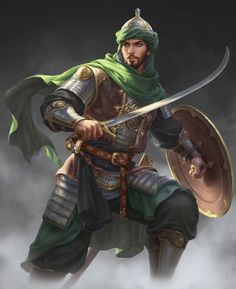
Morad Ibn al Torag
The Jakkari tell a tale of a young man with no honour. He was very beautiful so they cut his nose off, placed it in a bag and hung it around his neck. It is a short story because the Jakkari do not have time for such nonsense.
Morad, son of Torag, of House Ishtar was groomed from birth to ride, hunt and fight but most of all to be a Voice…a Voice of Al’Akbar. The Jakkari have few possessions: a vakan, a horse and a falcon…what more could a man want?
To be a Voice is to sacrifice all, House and wife, and Morad dreams of it more then anything else - though lately his dreams are filled with flames and a dry mouthed fascination in seeing the world burning.
Meta: Human Paladin
Madam Portencia
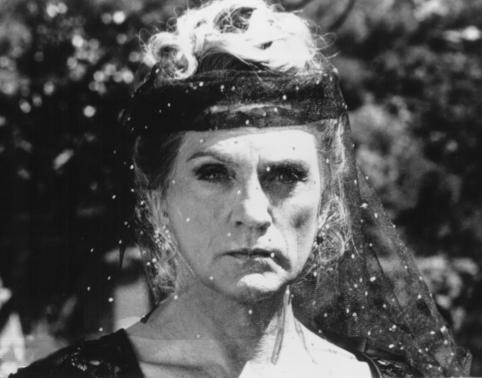
Madam Portencia aka Albert Carnegie.
Cartwright Carnegie, eldest son of Carmichael Carnegie, Patriarch of the Elturel Carnegies, at the age of twenty-four, returned from his grand tour with a new young wife in tow. It will be no surprise to learn that this did not impress young Cartwright’s betters, and that she was an elf of an unknown family in no way improved matters. The disapproval of the Carnegie family was palpable and many were unable to disguise their frank animosity. No such scandal had befallen the Carnegie family for several generations and no effort was made to make her feel welcome. Nor perhaps would she ever have felt at home even were she accepted with open arms, for she always had a melancholy about her and ever did her eyes look to the horizon. Never-the-less, despite the misgivings of the family, Cartwright and Tabitha (for that was her name) lived for several years in apparent peace. Before long a child was born whom they named Albert after his great grandfather the notorious Field Martial Albert ‘Owlbear’ Carnegie.
Then one day, when the child was but three years old, Tabitha simply disappeared. Without a word, without a trace. There were the usual rumours of foul play but they quickly died away for the truth, suspected by all, was that she simply returned to her people. It was not in the nature of the Carnegie family to pursue the matter further and most were openly pleased to see the back of her.
The child she left behind in the care of his father and Cartwright, for his part, sensing perhaps that the whole affair was probably what his mother would term a ‘foible of youth’, was keen to restart his life in a manner suited to the eldest son of a good family of Elturel. As such he left the child in the care of a series on nannies and thought no more about him than was absolutely necessary.
Before long Cartwright remarried, this time to a far more suitable match, in the form of the middle daughter of Postlethwait family, Nancy Anne. They had three further children whom they doted upon. Albert was relegated to the shadows.
One day, when Albert was sixteen years old, it came to pass that a carnival arrived at the edge of town and Albert, like so many of the citizens of Elturel, went down to experience the excitements they had to offer. After wandering the fairground for some time, he found himself at the steps of the wagon of a fortune teller, one Madam Electra. He entered, drawn by an unnatural curiosity. Within he encountered eponymous soothsayer herself. She looked up at him and bade him sit.
“What can I do for you Albert?” she asked, speaking as one might to an old friend. Albert, perplexed that she should know his name, stammered a response as best he could “What? Oh, um, well don’t you tell fortunes?”
“Fortunes are not for the likes of us Albert. But you know that. Fortunes are for these wide eyed rubes who stumble in here seeking a meaning to their mundane lives. Most times, of course you don’t need magic to tell their fortunes; it’s written all over their face, clear enough for any to see. You and I on the other hand, Albert, you and I, we have no use for fortunes. You and I must make our way.”
Albert mumbled a confused thank you to the fortune teller and hastily exited the caravan. Without further exploration of the carnival he made his way home, his mind alive with new possibilities.
Three days later when the carnival was invited to leave town by the local authorities, Albert went with them. He had done it; he had run away to the circus.
Much like when his mother left, there was more relief than anything else felt amongst the Carnegie clan. Finally they were free from the last reminder of the unfortunate events of Cartwright’s past.
Albert’s time with the carnival was hard but fulfilling. Colin, the carnival leader was a bitter old Dwarf who was apparently resentful of everyone he met, a trait that only grew stronger as he aged. Although Albert’s duties revolved around the care of animals and hauling of heavy equipment, he none the less spent his every spare moment in the company of Madam Electra, learning all he could of her trade and soaking up all he could of her acerbic wisdom.
Years went by and Albert grew up and then began to grow old. He travelled further and wider with the carnival than he could possibly have imagined. The carnival plied its trade up and down the Sword Coast stopping in every city and town that did not drive them off.
One evening, while the carnival was camped outside the city of Waterdeep, Albert knocked on the door of Madam Electra’s wagon and, unusually received no reply. Concerned for her wellbeing, he hastily let himself in. Madam Electra was very old by this time and Albert himself was nearing fifty years old. Upon entering, he found Madam Electra nowhere to be seen. All her numerous possessions were in place but she was gone. On the small table lay a folded note held down by a small wooden box. Albert slipped the note from under the box and read it over several times before opening the box:
The time has come for me to pass on the mantle. To that end I hereby leave all that I own to Albert Carnegie including my pony, my wagon and all that it holds. Colin, do not dare cross me on this.
For you Albert I have but three words: Make. Your. Way.
Albert opened the box. Within lay that which he suspected, Madam Electra’s most prized and portentous instrument; a nearly spherical pink crystal about the size of an egg. The crystal was cut with twenty perfect triangular faces, each inscribed with a different rune.
On leaving the wagon Albert spied Colin nearby and approached him with the note. Colin read it with a sneer and thrust it back into Albert’s hand. “I’ve got three words for you an’ all pal: Earn. Your. Keep.” Albert looked back over his shoulder to Madam Electra’s caravan then back to Colin. Colin raised his eyebrows and grinned like the sadist he was then turned and walked away with a satisfied chuckle.
Albert knew what he must do and knew that he would do it well. From that day he became Madam Portencia and with the help of Madam Electra’s extensive collection of fortune teller ephemera, not to mention her years of wisdom, became as fine a fortune teller as the carnival had ever known.
She travelled with the carnival for almost twenty years until one day it happened that Colin declared they were to travel to Kheldrivver as he saw this as an untapped well of newly rich suckers just ripe for the picking (Colin’s habit of mixing metaphors was a constant frustration to the entire carnival). Madam Portencia felt an immediate and strong intuition that travelling the road to Kheldrivver at this time, so soon after the troubles, would be a very bad idea. She expressed as much to Colin. But Colin would not be swayed; he dismissed Madam Portencia’s objections out of hand.
The next morning when the carnival was preparing to leave, Madam Portencia informed them all that she would not be joining them. Colin went into a rage and called Madam Portencia every name under the sun but this time it was Madam Portencia’s turn not to be swayed. Eventually Colin and the rest of the carnival departed and Madam Portencia’s took her caravan in the opposite direction towards Baldur’s Gate. Once there she parked her wagon in a vacant lot and hung out her sign just as she was accustomed to do. To her surprise Madam Portencia still found customers, even without the draw of the carnival.
She had been in town for perhaps a week when word reached Baldur’s Gate that a wagon train of carnival folk had apparently been waylaid by roving trolls on the road to Kheldrivver and every one of them murdered.
This was thirty years ago now and Madam Portencia had not again moved her caravan since hearing the news. She had become a permanent fixture in Baldur’s Gate both figuratively and literally. Today is her one-hundred-and-first birthday and for the first time in as long as she can remember she once again feels the restlessness that lured her mother away and which in turn lured a young Albert to run away and join the circus some eighty-five years ago.
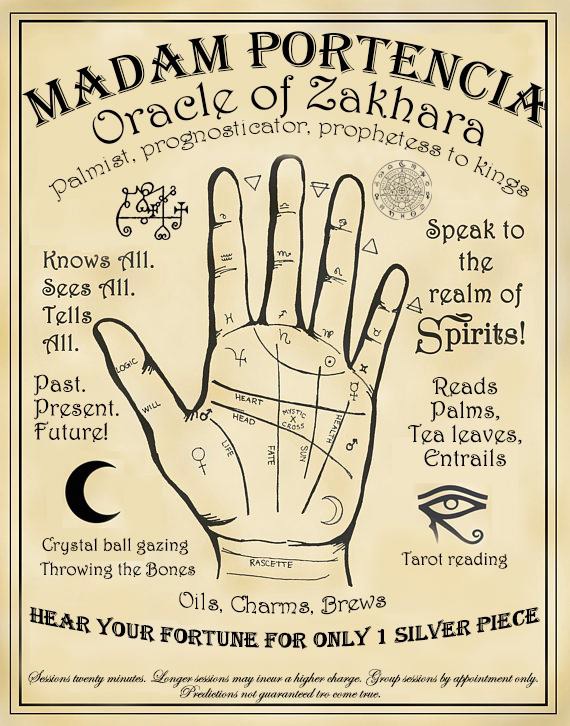
Meta: Half-Elf Wizard
Spider

Spider
“As far back as I can remember, I always wanted to be a gangster…”
“Can you be quiet? I’m trying to work here,” thought Spider as he crouched in the shadows of a deep window ledge above the alley.
“Quiet? You’re the only one who can hear me.”
“Yes exactly, now shut it.”
Spider watched as below, Boyle - the fat bastard - hitched up his trousers and tossed a couple of coins at the doxy he’d just, very briefly, had up against the wall. A self-congratulatory smile on his smug face, the merchant waved a lazy farewell and wandered off into the darkness of alley towards home.
Spider quickly turned, dropped himself to hang by his fingers, then let go, landing silently in a crouch. The working girl, still straightening her dress with a look of both disgust and boredom, saw Spider land. She flashed him a brief smile. Spider winked, pulled out his dagger, then headed into the shadows after Boyle.
Later that evening…
No one gave a second look as the goblin walked into The Howling Harpy, the inn owned by Margot Bettingsthwaite - “Ma Betts” as she was known, boss of the Eastway crew, the Sons of the Harpy. He raised a hand catching the eye of his old friend Max behind the bar, who jerked his head towards the door of the kitchen.
A welcoming heat and the scents of cooking, roasting meat and spices greeted Spider up entering the kitchen. Three huge cooking hearths blazed, over two, hung huge cooking pots, while a whole pig on a spit was being turned by a couple of young lads in the other.
Spider deftly stepped through the bustle of cooks and serving wenches, making his way to the vast wooden chopping bench at the centre of the room. He crouched below the edge of the bench, unstrapped his leathers and blades, stuffing them into a waiting bag, then stepped over to the nearby half barrel and dunked his in top half into the cold water within.
“Hello Spider dear, just in time. That pig’s coming off in a moment.”
On the other side of the bench stood the old woman, looking like the head cook of a fine house, or someone’s mother. “Did you manage to get that errand done for me?”
Spider straightened, wiping water from his face with cupped hands, and stared at Ma for a moment. “What errand?” he asked before breaking into a sharp-toothed grin.
“Cheeky bugger!” admonished Ma, throwing an apron at his face.
“Yes Ma, the job’s done,” said Spider tying on the apron, “Boyle’s being feasted upon by Eastway’s finest sewer rats as we speak. Easy peasy.”
“Easy peasy?”
“Well easier for me than it was for poor Connie having to put up with him,” he said sympathetically.
“Oh Connie, she’s a good girl that one”, cooed Ma. “Nicely done as always dear. I’ll let Nine-Fingers know Mr Boyle’s account’s been settled - that should earn us some fairy points. Anyway, let’s get this pig carved aye.”
“Did you use the new spice rub I made?” asked the goblin with some gravitas.
“Yes Spider, and we scored the skin like you showed us.” Ma rolled her eyes in exasperation. “Precious chefs and their egos… Sewer rats. Hells, my memory these days.”
Ma bent over, looking under the carving bench, “There’s a rat lurking somewhere behind the flour sacks. Sammy dear, be a love and go take care of it please.”
“I hate it when she calls me that – the old crone.”
“You’d better hope she never hears you say that!” chuckled Spider in his head as a very large, hairy spider crawled out from his bag and rapidly made its way, dodging moving feet, over to the sacks in the corner.
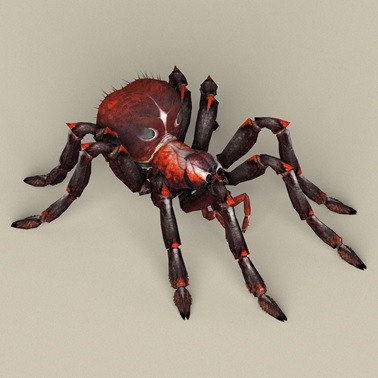
Meta: Goblin Rogue
Taramak Riverfist Egena-Vutha
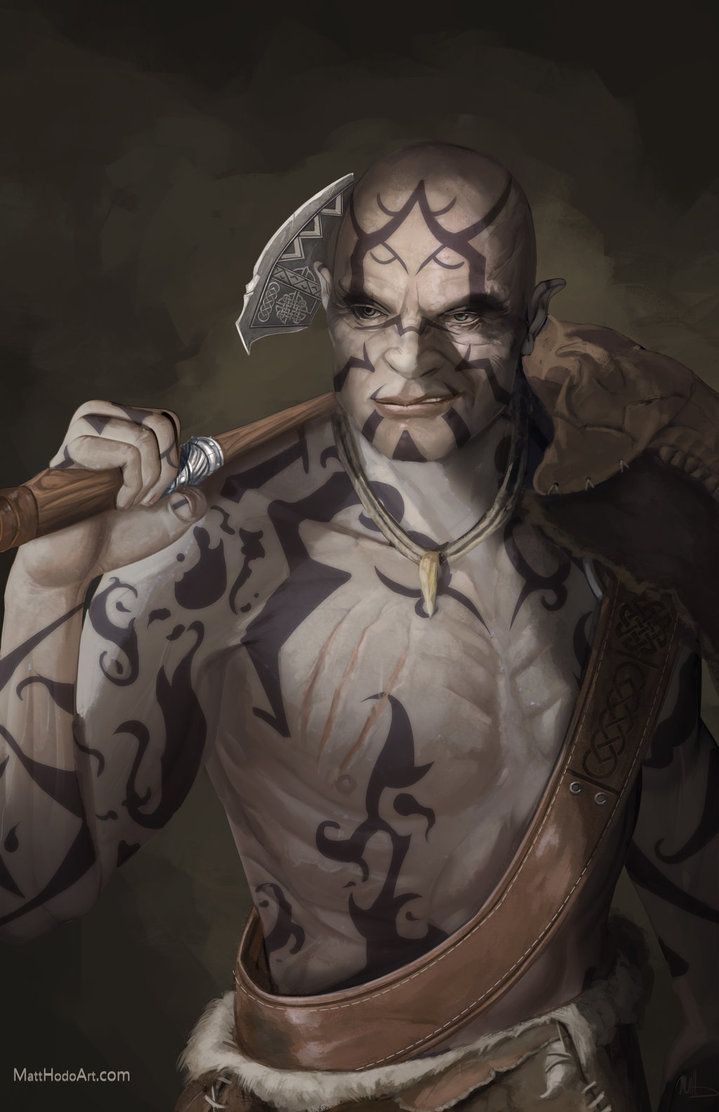
Taramak Riverfist Egena–Vutha, more commonly known as ‘Mak’ (much to everyone’s relief), had left his home Spine of the World some months ago. He and others in his tribe had been suffering visions of impending disaster, and the tribe’s shaman had directed Mak to the warmlands of the South to investigate the source of these terrors.
Mak travelled to Baldur’s Gate, a strange place where people seemed perpetually busy and paid little attention to anything except money and power. He found employ in the City Watch, imaging it would provide insight into the ways of the smallfolk. His giant stature drew immediate attention, and shortly after arriving he found himself assigned as a glorified bodyguard for Duke Thalamra Vanthampur, one of the ruling Council of Four in Baldur’s Gate. She hired Mak as a show-piece due to his unusual stature and rare appearance—a trophy to add to her ill-begotten collection. His time was spent mostly standing half-dressed and well-oiled in any room the Duke inhabited, and suffering the indignity of being paraded around performing shows of strength at Vanthampur’s request.
He was bored out of his mind and fast losing patience with the Duke. Whilst she was undoubtedly powerful, it was a power of politics not honour or strength, and his respect for her had dwindled to almost zero. Mak had also regularly seen two of her three sons during the always fraught family dinners: Thurstwell, a frail unpleasant man living in the mansion, and Amrik a charismatic and conniving scoundrel who visits only occasionally—both of whom hadn’t spoken a word to Mak. A third son, the hulking Mortlock, was rarely seen and clearly disliked by his brothers.
The only reason Mak hadn’t walked away from this ‘job’ in disgust is he had overheard some intriguing discussions—the family’s habit of treating him like a walking stone pillar leading to some loose lips. Thurstwell was often whispering in his room to someone, or something, in an unpleasant language that Mak didn’t understand a word of but which transported him again to the horror of his visions. And he had overheard the Duke whispering of plans ‘after Elturel’, often mentioning the name ‘Kreeg’ and something to do with a powerful shield.
Meta: Goliath barbarian
Torgrun Delfare
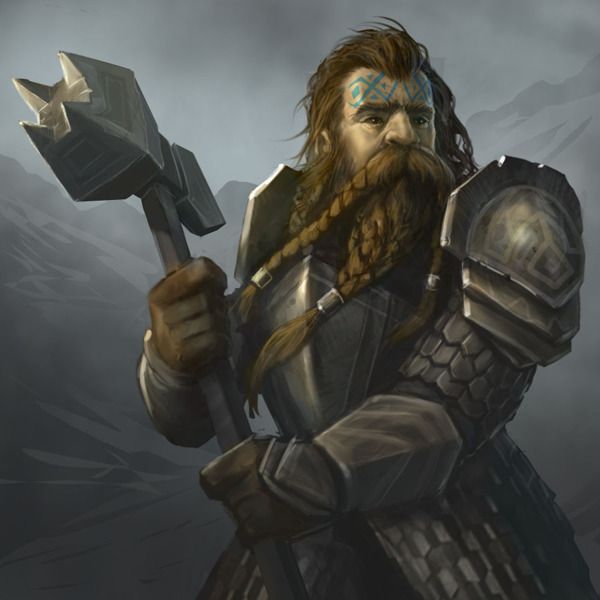
Torgrun Delfare (Tormnaheim), a shield dwarf-human Cleric and Hoof of the Hellriders of Elturel, has a human mother but holds firm to his father’s heritage as a dwarf. At the same time, he was born a follower of Torm, after his father turned his back on Moldnir. Torgrun’s ancestors lived in Shanatar, but were driven out in the fall of High Shanatar in -2,600 DR, after which they fled north to join those who had migrated to the north of Faerun, to the city of Ammarindar. They took part in the construction of the Citadel of Yaunoroth (1 DR), and lived in the city as the clan Tormnaheim until its fall in 882 DR. The remnants of the clan escaped to the north (most others fled south) to Citadel Adbar, where the Tormnaheim clan still has a presence.
His father, Baerun Tormnaheim, was a wanderer who travelled widely beyond the Citadel, fighting as a mercenary. While fighting the hobgoblin-led army of orcs and goblins in the defence of Iriaebor in 1264 DR he came under the thrall of the God Torm, after he witnessed the Tormite cleric Garshond accept the gift of a powerful holy relic, the Helm of Torm, newly risen from the bog of the battlefield, with which he turned the battle. The victorious Godrun convened the Council of Torm, and formed the Vigilant Riders of Torm, which Baerun joined. Despite the challenges of horsemanship for a dwarf, Baerun became a central figure in the battles that follow, protecting the lands between Amn and the Sea of Fallen Stars. By 1268 the short-lived Vigilant Riders come to a sticky end at the Battle of Ghost River. Baerun escaped with his life and made his way to Elturel, where he settled to make a new life in the service of Torm. He joined the Hellriders of Elturel, rising to the rank of Destrier over the course of more than a hundred years in the saddle, through the Times of Troubles, which only served to strengthen his ties to Torm. After turning his back on the Dwarven God Moldnir to follow Torm, it wasn’t so far for him to take a human wife. After a long courtship, Idelisa Delfare, herself a follower of Torm, wed Baerun. She is 30, and he is 195.
It is in Elturel that Torgrun is born in 1401 DR. Unlike his father, Torgrun is not so prone to wandering, growing up within the city of Elturan as a hellion who aspires to take up the reins as a Hellrider. But even more, he seeks knowledge and the power of his faith. For him, rising to be a cleric of Torm is the only path he can see that might lead him out of the oppressive shadow of Baerun, Destrier of the Hellriders. To escape this shadow, albeit temporarily, Togrun has accepted an assignment to the den of iniquity that is Baldur’s Gate, running undercover as a mercenary of the Flaming Fist. His task there is to advance the purposes of Elturel and Elturgard, for these are the purposes of Torm incarnate. He’s even prepared to act against his nature in the name of Elturgard and Torm. Some say only death frees a Hellrider, and his acceptance of that truth was obvious in his occasionally reckless behaviour in pursuit of his goals: Torgrun will do whatever it takes to win the favour of his people, his father, and the Hellriders.
Togrun had recently received updated orders from Elturel to urgently find out more information about the Cult of the Dead Three. His Hellrider superiors had heard rumours that a major event is being planned, but there was great secrecy about what exactly this means and finding out more from Elturel was impossible—they hoped information in Baldur’s Gate might flow more freely.
The Hellrider leadership were also worried about increasingly erratic behaviour from High Overseer Thavius Kreeg. His desperation to get Grand Duke Ulder Ravengard to Elturel, and a seeming lack of attention regarding the actual negotiations, have unsettled the political and military elite of Torgrun’s home city. As High Overseer, Kreeg ultimately leads the Hellriders, and commands great respect for saving the city many years ago when he summoned the Companion, but of late he has been seldom seen and often highly distracted when he was. Togrun’s superiors want to know if the powers of Baldur’s Gate are aware of the change in Kreeg’s demeanour—which could potentially weaken Elturel’s negotiating position with Ravengard during the impending diplomatic negotiations.
Torgrun started to put a together a list of likely suspects for interrogation and questioning about the cult—maybe that urchin Spider can help with enquiries, he knows the streets better than any other. Finding out the nobilities attitude toward Kreeg will be more difficult—though he did recall a hulking non-local bodyguard that recently came into Duke Thalamra Vanthampur’s employ—perhaps he is a weak link.
Meta: Half-Dwarf Cleric